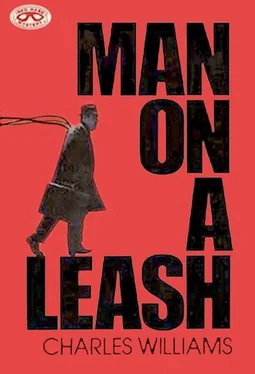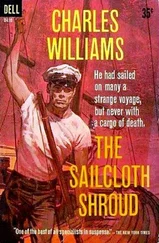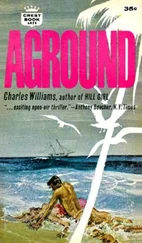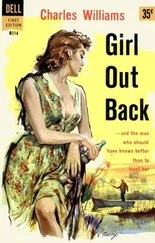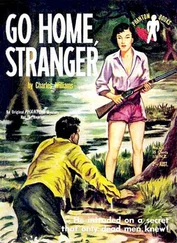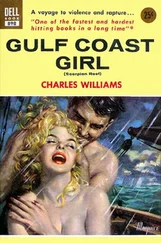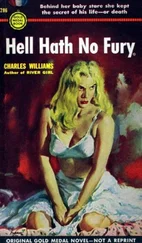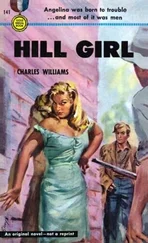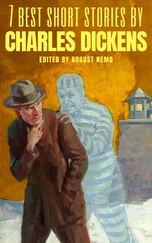“If you’ll remember,” Kessler’s voice said, “D. B. Cooper got away with it, precisely because he was first and he was qualified.”
The bed was beginning to creak on the other side of the wall. Romstead and Paulette Carmody looked at each other and shrugged.
“So sign it, Romstead,” the voice went on. “And Mrs. Carmody, just write ‘Dear Jerry’ comma ‘send it’ period ‘He means business’ period on that sheet of paper. I want that note on its way in the next ten minutes.”
“And if we don’t sign?” Romstead asked, knowing it was a futile question and what the answer would be.
“We bring Mrs. Carmody out here and work on her. We’ll do it in front of the intercom, so you can listen.”
Romstead thought of the burro. He signed the withdrawal slip and handed her the pen. The sheet of paper was on the nightstand between the beds. The little gasps and outcries filtered through the wall. “I’ll be glad to sign it,” she said wearily to the intercom, “if you’d just move that riding academy to some other room.” She wrote the message he had dictated and put her signature to it. Romstead put the two pieces of paper on top of the chest under the panel, along with the passbook. A hand came through and picked them up. The slide closed and he heard the latch being refastened. The ecstasy on the other side of the wall reached climax, died with one final shriek, and silence returned. Paulette Carmody didn’t even try to evade it anymore; maybe, Romstead thought, she had accepted it as part of the process of breaking them down and decided that escape from it was hopeless.
He wondered if the girl could be Debra, but it didn’t seem likely. Debra was presumably on heroin, which was supposed to inhibit all sexual desire; if anything had ever eroded this chick’s libido, he’d hate like hell to have run into her in a dark alley before she began to cool down. He heard a car start up somewhere in front. The ransom note was on its way.
“What was all this about D. B. Whatsisname?” Paulette asked.
“You remember,” Romstead replied. “D. B. Cooper—at least that was supposed to be his name. He started the wave of plane hijackings for money; bailed out over the Pacific Northwest with two hundred thousand dollars, and so far he’s either got away with it or he’s dead. I’m all for his being dead, and there’s a good chance of it. Jumping into heavy timber in the dark will never make you the darling of the insurance companies.”
“Oh, sure,” she said. “I remember it now. And you figure if this dingy creep gets away with it, electronic extortion will be the latest craze to sweep the country? I see what you mean. And what do you think his chances are of getting away with it?”
“Damned good,” Romstead said. “For the short term. They’ll get him in the end, of course, but I don’t know how much good that’ll do us.” There was no use raising any false hopes; also, they were being overheard.
There was no further word from the intercom. The day dragged on. At noon two bowls of some kind of stew were handed in through the sliding panel, along with some cans of beer and a carton of Paulette Carmody’s brand of cigarettes. They began to hope the girl had gone off with the bearer of the ransom note, but shortly after noon she was back in action again.
“Do you suppose,” Paulette asked, “there are any convents that take neophytes my age?”
Romstead smiled but said nothing. He was only half listening to her. He wished Kessler would come on the intercom with his plan for the ransom pickup. There was little or nothing to work on until he did. After a while he went over and spoke into it. “When do we get some idea of what we have to do and where we do it?” There was no reply. Maybe it was going onto a tape. How many were left out there now? There had been complete silence for more than half an hour. Had they all left on business in connection with the pickup? He took off one of the heavy brogues, went over to the chest, and raised the shoe as if to smash in the mirror. The panel slid back, and the barrels of the shotgun came through, aimed at his chest.
“Okay?” a voice asked. It was Top Kick.
“You answered my question,” Romstead said. He put the shoe back on and paced the room, goaded by restlessness and frustration.
“I’ve never been able to understand,” Paulette Carmody said, “what the relationship was between you and your father. If there was any.”
“There wasn’t much,” Romstead replied.
“I know. Let’s face it, parenthood must have weighed about as heavily on him as it does on the average ram or stallion or seed bull, and somehow I can’t quite see him as today’s suffering blob of guilt on the head candler’s couch weeping and beating his chest and asking, ‘What did I do wrong?’ He supported you until you were old enough to support yourself, and if he happened to run into you now and then he’d buy you a drink, but that was about it. But still he liked you and admired your athletic ability, and it all seemed to turn out all right. Did you resent the fact you hardly ever saw him? Did you feel rejected?”
“No.” He stopped pacing and thought about it. People had asked him the same question before, and he’d never known how to answer it. There had been respect between them and a good deal of mutual admiration, but they’d simply never needed each other. Maybe, actually, neither of them had ever really needed anybody; the self-sufficiency was inherited, built in, and perhaps that was the only thing they shared.
“Have you got a girl?” she asked.
“Yes. Quite a girl.”
“I’d like to meet her sometime. But God help her if she ever marries you. You’re simply too much like him.”
He shrugged. “That’s what Kessler said.”
“And I wonder what he meant. They killed your father in the end, but I’m not sure that’s all that happened. They’re very, very careful.”
He started to tell her that you always had to be careful of people who didn’t have much more to lose, but there seemed no point to it. She was tough-minded and realistic enough to handle it, but why belabor the matter?
They were given some more of the stew for dinner. The overhead light was turned on at dusk. Sleeping under it was difficult, but, Romstead reflected, it would have been a little difficult anyway. All they could do was endure it and wait. It was eleven o’clock the next morning when they heard a car drive up in front. A few minutes later Kessler came on the intercom.
“You’ll be glad to hear that Jerome Carmody and the bank have agreed to the two million,” he said, “and to the terms of delivery.”
“What about the police?” Romstead asked. “And the FBI?”
“They swear they haven’t called them in, and there’s nothing in any of the papers or on TV; but of course they have. I have no doubt that right now whole roomfuls of them are playing the telephone tapes over and over and tearing their hair out in handfuls trying to get voice patterns or something in the background. A cordless vibrator against the throat doesn’t help them much.”
Keep going, Romstead thought; embroider. Egomania’s about all we’ve got going for us—egomania and greed.
“At first we thought of having Jerome Carmody deliver the money,” Kessler’s voice went on, “but we found out he’s got a serious heart condition, and I don’t want somebody crapping out on a freeway at seventy miles an hour with two million dollars of my money in his car—”
“You ought to guard against that streak of sentimentality,” Paulette interrupted.
“Shut up, if you want to hear this. So we decided on Brooks. He works for the bank, so the bank is simply delivering your own money to you. Two of us have seen him up close, so they can’t run in an FBI ringer on us.
Читать дальше
